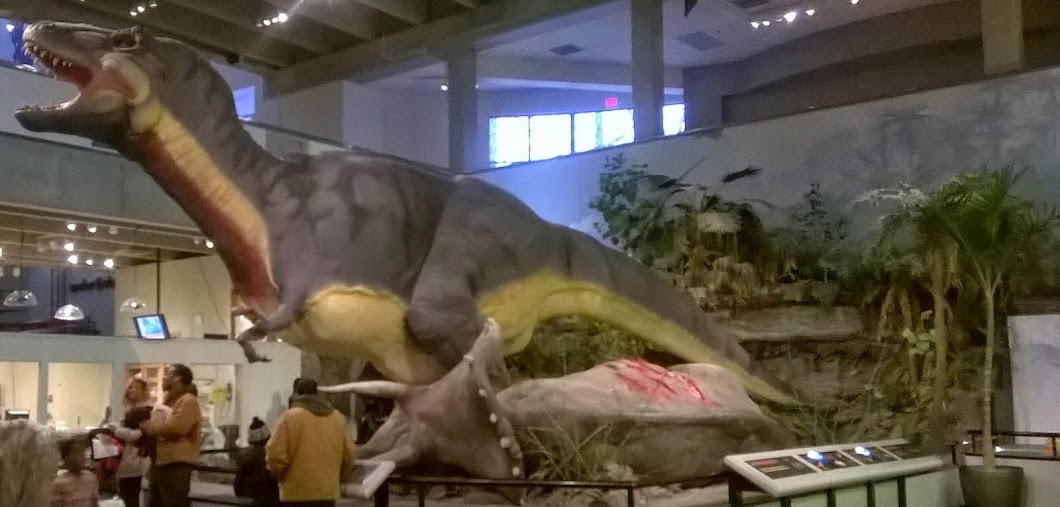 |
| ©Fabio Pastori |
 Baryonyx, meaning heavy claw, was found, in part, in Dorking, England originally. Skeletal remains have also been recovered in Spain and Portugal as well. The long snout, claws,teeth arranged at large intervals and fine serrations on the teeth make Baryonyx one of the very few piscivorous dinosaurs that can be categorized as such with great certainty. The most complete specimen found to date is thought to be a juvenile and measured 28 feet long and about 1700Kg. The giant claw on the hand measured approximately 9.8 inches and is on the thumb or first digit of the manus. The jaws possess 96 teeth; 64 in the lower jaw and 32 in the upper jaw (mandible and maxilla for you bone fiends). They also possessed a crocodilian angle of bone near the snout which helps crocodiles to secure their prey and hinder its escape.
Baryonyx, meaning heavy claw, was found, in part, in Dorking, England originally. Skeletal remains have also been recovered in Spain and Portugal as well. The long snout, claws,teeth arranged at large intervals and fine serrations on the teeth make Baryonyx one of the very few piscivorous dinosaurs that can be categorized as such with great certainty. The most complete specimen found to date is thought to be a juvenile and measured 28 feet long and about 1700Kg. The giant claw on the hand measured approximately 9.8 inches and is on the thumb or first digit of the manus. The jaws possess 96 teeth; 64 in the lower jaw and 32 in the upper jaw (mandible and maxilla for you bone fiends). They also possessed a crocodilian angle of bone near the snout which helps crocodiles to secure their prey and hinder its escape.

No comments:
Post a Comment